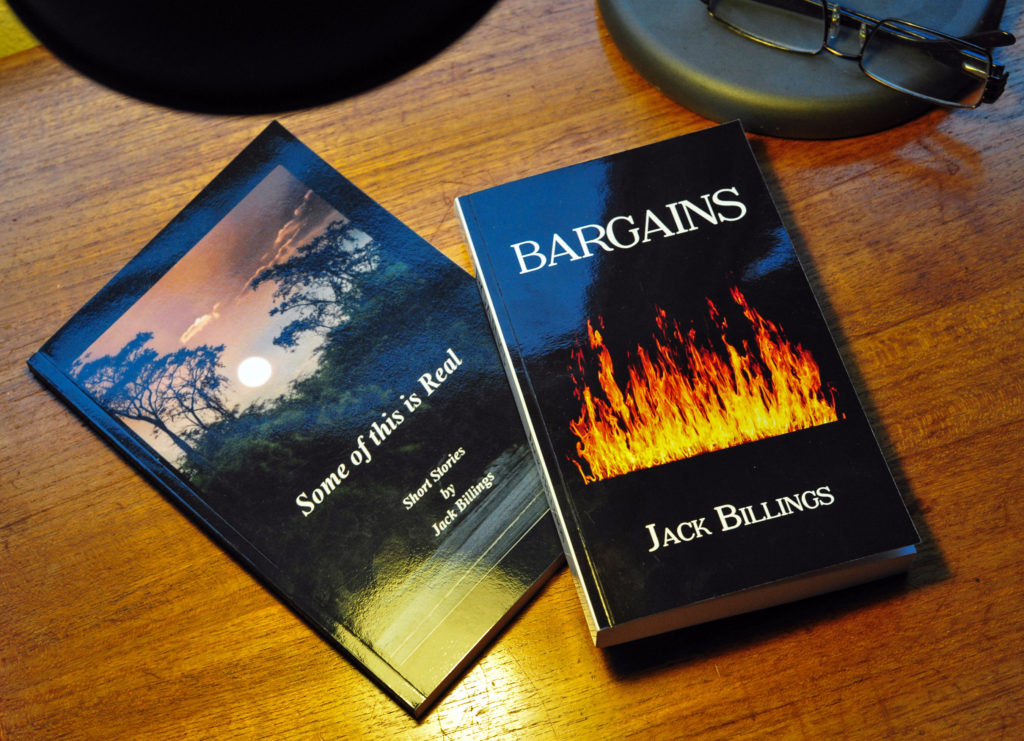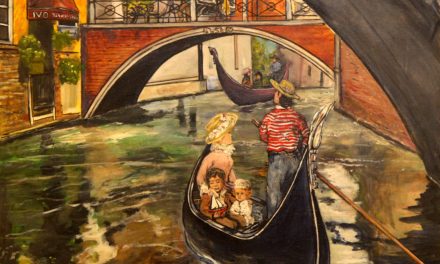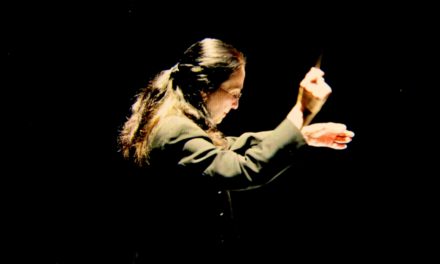(Above: Jack Billings; photo by Paul Carter)
By Randi Bjornstad
Calling someone a “jack-of-all-trades” is hardly a misnomer when it’s applied to Eugene attorney, judge, arbitrator, woodworker, and whitewater rafter Jack Billings, who now also has added short-story and murder-mystery writer to his list of credentials.
Like many other authors, many of those previous life’s activities have found their way into his writing, starting with his growing-up years in East Waterloo, Iowa, which became useful in his future fiction because it reflected his real-life experience growing up on the so-called wrong side of the tracks.
The Cedar River bisects Waterloo along a northwest-to-southeast line, and it also divided the town racially, starting in the early 20th century.
“I grew up on the northeast side, where there was a substantial minority population,” he said. “There had been a big strike against the railroads in 1911, and a lot of Black people were brought up from Mississippi to work in Waterloo and help break the strike, but they didn’t receive any benefit in return.”
Although he grew up there several decades later, Billings was well aware in childhood that discrimination against Black people was extreme in Waterloo.
“It was no sales, no loans — Black people couldn’t rent homes on the other side of town, and they couldn’t get loans to buy their own houses anywhere,” he said.
And while 15 percent of his high school was Black students, “The two groups knew each other superficially at school, but they were never really together,” he said, although he remembers spending time occasionally with fellow students and their families.
Those early memories became the basis of The So What, one of the short stories in Billings’ first foray into fiction, a volume titled, Some of This is Real: Short Stories by Jack Billings.
“So What” refers to a tavern by that name “on the corner of East 4th and Vine, just up the street from the old Illinois Central roundhouse,” the story begins. Its owner, Eddie Wandro, bought the tavern, then called the Roundhouse, not long after World War II and renamed it in 1959 in honor of the popular Miles Davis jazz tune.
Billings paints a picture of the town and its people, from the point of view of the tavern owner, who “was as racist as the next white person” but who nonetheless knew and shared an occasional glass of beer with a Black hairdresser who ran a nearby salon. It was Lottie and her husband, Curtis, who gave Eddie the idea of converting a storeroom on the Vine Street side of the tavern into its own bar, named the Side Pocket, to serve the segregated minority population.
Eventually, Eddie Wandro realizes that times are changing, integration is inevitable, and that he’s getting older and doesn’t really want to run a tavern anymore anyway. He sells both places to his Black partners, where they are combined and flourish, until — but that’s the rest of the story.
Another story idea with a real-life twist came out of Billings’ membership on the board of directors of a local utility cooperative.
“There was another member on the board who liked to read (religious) scripture, and who asked me if I did,” he said. “That, combined with a New Yorker magazine cartoon I saw of a guy sitting in an airplane — the caption was, ‘I always find a trip goes faster if I have someone to evangelize’ — gave me the idea for a story.” In The Agnostic’s Journey, a devout evangelical and an equally committed agnostic sit next to each other — and converse — during a flight from Eugene, Oregon to Boise, Idaho.
Billings tells his short stories in an easygoing, straightforward style. At the end, he includes acknowledgements and notes on the stories, such as the fact that Eddie Wandro of the So What Tavern actually was his uncle, and that he was able to capture the flavor of Waterloo, Iowa, through access to newspaper archives at the city’s public library.
Another story in the book, The Orion, also had a factual basis, in the 1998 decision by the Alaska city of Cordova to boost its economy by becoming a port of call for cruise ships, first hosting a cruise ship made up of 500 gay men passengers, followed a week later by a cruise ship whose 500 passengers were lesbian. The third ship, packed mostly with elderly retirees, “caused the most trouble with complaints, bickering among themselves and shoplifting at the Museum,” Billings wrote.
He self-published Some of this is Real in 2020 under the rubric of Spencer Hollow Publishing, via KDP — Kindle Direct Publishing — owned by Amazon.
In contrast, Billings’ second book, a murder mystery titled Bargains, was published in 2021 by Austin Macauley Publishers. The main characters — detectives Betty Kovaks and Jeff Wheeler — made their first appearance in The Interrogation, the last short story in Some of this is Real.
Bargains is a classic, complicated, fast-moving murder mystery involving methamphetamine addiction, thievery and fencing of stolen property, death from sepsis caused by a protective dog, arson, and murder. Once again, Billings relies on his background as a criminal defense attorney, prosecuting attorney, and trial judge.
Even so, he began writing Bargains without any idea where it was headed. Now that it’s published, he’s deep into his next book.
“Some people know the whole story when they start writing, but I don’t,” he acknowledged. “I typically write the opening, and then it’s, ‘Where is this going?’ “
Some things come whole cloth out of previous experience, some are just made up, he said. “How do I think of stuff? It just kind of comes into my head.”
None of it comes directly from his long experience on the judicial bench — “I never kept a journal about cases I was involved with,” Billings said — but clearly, snippets of previous encounters as well as discussions with people experienced in law enforcement and crime detection have helped him keep his writing realistic.
His earlier, non-fiction writing experience grew out of his 40 years of real-life river rafting trips — several with his wife, Linda DeSpain — on rivers in central and South America. One was past Mayan ruins on Rio Usumacinta between Guatemala and Mexico, another on Rio Marañón, the headwaters of the Amazon, accessible only by foot or river. The fold-out cover of the May 7, 2018 issue of The Outdoor Journal is a photograph of Billings on one of his trips, as well as one of the last issues in print form of the magazine.
As for the other items on his résumé, there’s still woodworker to explain.
“In junior high school, I was in an accelerated class, and I had a hole in my schedule,” Billings recalled. “My choices were calculus or woodshop — I chose woodshop. I made a bookshelf — it swayed because my bevels were not good, but it carried me through law school.”
More recently, he built a plywood instrument case to enclose an electric keyboard for the drama department at Eugene’s private, nonprofit Oak Hill School. And just a couple of months ago, he finished a solid walnut kitchen island for his wife, Linda.
Author: Jack Billings
Titles: Some of this is Real: Short Stories by Jack Billings (2020, available on amazon.com and Kindle); and Bargains (2021, available locally at J Michaels Books and online at amazon.com and Kindle)

Fiction works by Jack Billings; photo by Paul Carter












